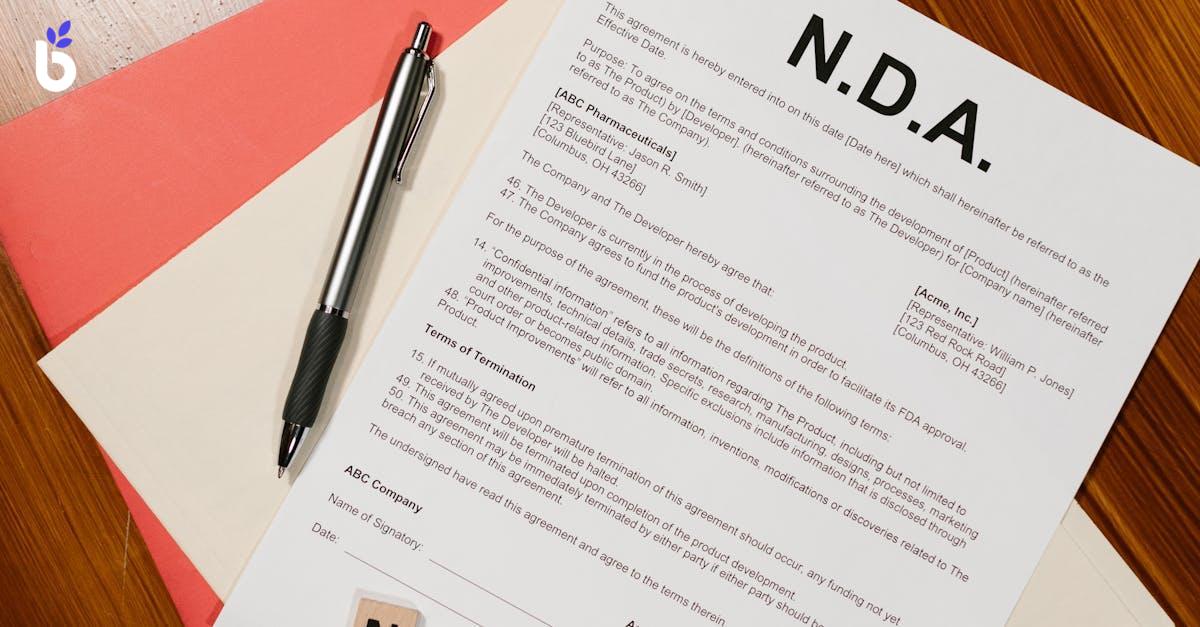WHAT IS NON DISCLOSURE AGREEMENT?

What is a Non Disclosure Agreement (NDA)?
A Non Disclosure Agreement (NDA), often referred to as a Confidentiality Agreement, is a crucial legal contract that binds two or more parties to protect sensitive information from being disclosed to unauthorized individuals. It plays a pivotal role in various contexts, particularly in the business world where confidentiality is essential for safeguarding trade secrets, proprietary data, and sensitive discussions.
Table of Contents
- Introduction to Non Disclosure Agreements (NDA)
- Key Elements of an NDA
- What Is a Non Disclosure Agreement (NDA)?
- FAQs
Introduction to Non Disclosure Agreements (NDA)
A Non Disclosure Agreement is essential for maintaining the confidentiality of sensitive information shared between parties. These agreements delineate what information must remain confidential and the responsibilities of each party in safeguarding that information. By defining expectations clearly, NDAs foster trust and protect the interests of all involved parties.
Key Elements of an NDA
Understanding the critical components of an NDA can help you to navigate these legal instruments effectively. Some key elements include:
- Parties Involved: This section identifies the parties entering into the agreement, ensuring all entities that can access the confidential data are explicitly listed.
- Coverage: The coverage clause specifies the nature of the information deemed confidential, which may encompass business secrets, intellectual property, or sensitive financial details.
- Obligations: This outlines each party's responsibilities regarding the handling of confidential information—how it should be stored and who is authorized to access or modify it.
- Rights: The rights section details the conditions under which information may be disclosed to outside entities, clarifying the protective measures in place.
- Time Period: NDAs typically specify a duration of confidentiality; they remain valid until the agreed-upon expiration or until the confidential information enters the public domain.
"A well-crafted NDA can prevent potential setbacks resulting from breaches of trust and confidentiality."
What Is a Non Disclosure Agreement (NDA)?
An NDA is a legal assurance that binds parties to confidentiality regarding sensitive information. It establishes a formal framework to protect trade secrets and significant business data, ensuring it remains out of public reach. Such agreements are essential in scenarios involving sensitive negotiations, partnerships, or sharing proprietary developments.
FAQs
What is the purpose of a Non Disclosure Agreement?
The primary goal of an NDA is to prevent the unauthorized sharing of confidential information between involved parties. NDAs serve to shield trade secrets, proprietary technologies, and sensitive data that might lead to competitive disadvantages if disclosed.
What are the key elements of a Non Disclosure Agreement?
Key elements of an NDA include the identification of the involved parties, the confidential information being safeguarded, respective obligations of each party, existing rights, and the time frame for which confidentiality is required.
Are NDAs only used in business contexts, or can individuals use them too?
While NDAs are predominantly utilized in business environments to protect corporate confidentiality, individuals can also employ them to safeguard their personal ideas, inventions, or designs that they wish to keep private.
Understanding and effectively utilizing NDAs ensures that sensitive information remains protected, fostering an environment of trust and security. For more details, you can refer to our glossary on Non Disclosure Agreements.
Take control of your business today
Explore BizCRM App and start your journey towards business success.
